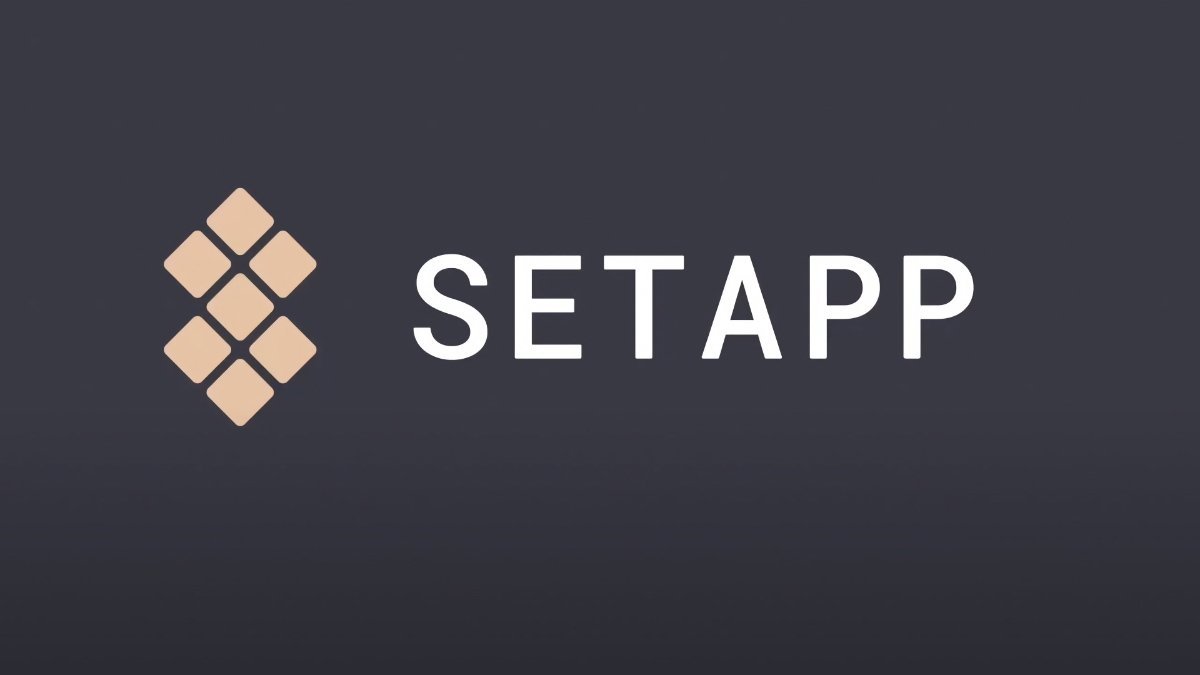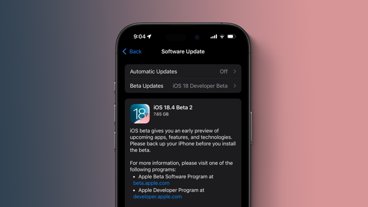Setapp is planning to launch its own alternative App Store in the EU in 2024, taking advantage of law changes that will allow third-party digital storefronts to exist on iPhone and iPad.
Apple has reportedly been preparing itself for the impact of the Digital Markets Act in the European Union, which includes rules that will potentially force Apple into allowing other companies to add their own version of the App Store to iPhone and iPad. On Tuesday, a potential App Store rival entered the fray.
Software subscription service Setapp declared on Tuesday that it will introduce its own rival mobile app store in 2024. Specifically in response to the DMA, the storefront will be exclusive to users in the EU, and the company has launched a wait list for users.
As "gatekeepers" like Apple and Google are being forced to open up their platforms, Setapp "is now empowered to introduce its app store for EU users, ensuring that they can access and enjoy Setapp's extensive collection of high-quality apps on their iPhones and iPads," the service explained.
Much like Apple's App Store, Setapp's version will offer a curated collection of mobile apps, ranging from productivity tools to lifestyle applications. Over 30 current vendors of Setapp's Mac-based service will be a part of the new storefront, including Ulysses, Taskheat, NotePlan, and Soulver.
"We view this development as an exciting first step and are eager to participate. We look forward to further easing of restrictions by Apple worldwide in the future," said Mykola Savin, Product Lead at Setapp.
Savin continued "As a response to our users' top request since day one, the Setapp mobile app store will provide users with a more convenient way to discover and use a wide variety of apps in one place on their iPhones and iPads, as well as make it easier for developers to reach a broader audience and showcase their apps to iOS users."
As Setapp previously dealt with web and macOS developers, the new storefront's creation means Setapp will also willingly work with iOS-only developers too. The company has opened up applications from iOS developers for app submissions.
To encourage adoption by developers, Setapp is also going after Apple's infamous 30% fee for in-app purchases and sales in the App Store.
Setapp will distribute 70% of the user's monthly fee for the service to developers of apps that the user actually uses in the month. However, a second guaranteed 20% portion from the remainder will be handed over to the partner who brought the user to the service.
While more a subscription-based app distribution platform rather than an app storefront per se, Setapp isn't the only company keen to take on the App Store when the EU allows it.
Epic Games has previously signaled in 2020 that it wants to launch its own Epic Games Store on iOS. In March 2023, Microsoft said it was planning to bring Xbox games to Apple hardware once the EU rules come into force.
 Malcolm Owen
Malcolm Owen







-m.jpg)






 Brian Patterson
Brian Patterson
 Charles Martin
Charles Martin



 William Gallagher
William Gallagher
 Christine McKee
Christine McKee
 Marko Zivkovic
Marko Zivkovic







8 Comments
I've noticed that promotional articles about Setapp will always have quotes from developers about how Setapp doesn't have some of the "restrictions" of the App Store...yet they always fail to provide any specifics on what exactly those restrictions are...which probably means the restriction is something that is beneficial to users. Privacy? Security?
If I’m recalling correctly Tim Cook has said that Apple will still get its cut from apps sold outside the App Store. If that’s the case will it really be worthwhile for third-parties to sell outside of Apple’s official store? If an app developer has to pay a fee to Setapp and then a fee to Apple how is that better for them than it is now?
Hang on, this doesn’t sound like a great deal to me.
So four of the five actively-used apps get $3 per month each, Ulysses gets $3.60 per month, and SetApp gets $9.40 per month.
Now, let’s compare one app with a $5/month subscription via the Apple App Store. The developer gets $3.50 per month, and Apple gets $1.50 per month — for the first year.
And will SetApp handle all the FinTech of crediting sales in the EU to a US Bank account , providing all the monthly reports, and usage, and all the special EU rules with privacy statements etc etc. Apple does a lot of stuff for its cut of the sale. As well as providing a level of protection for the user ( not perfect, but better than nothing) that you are not getting malware.